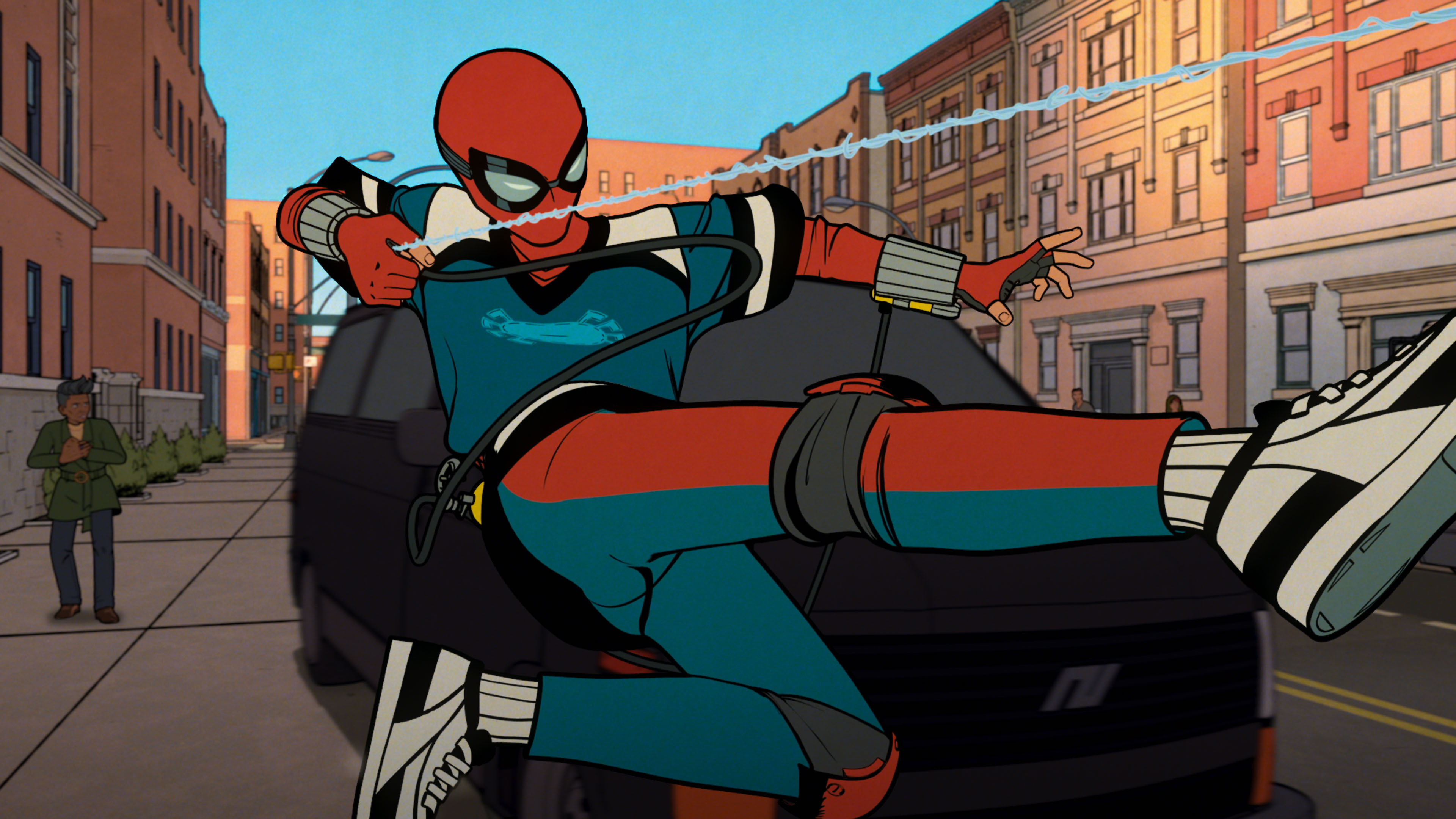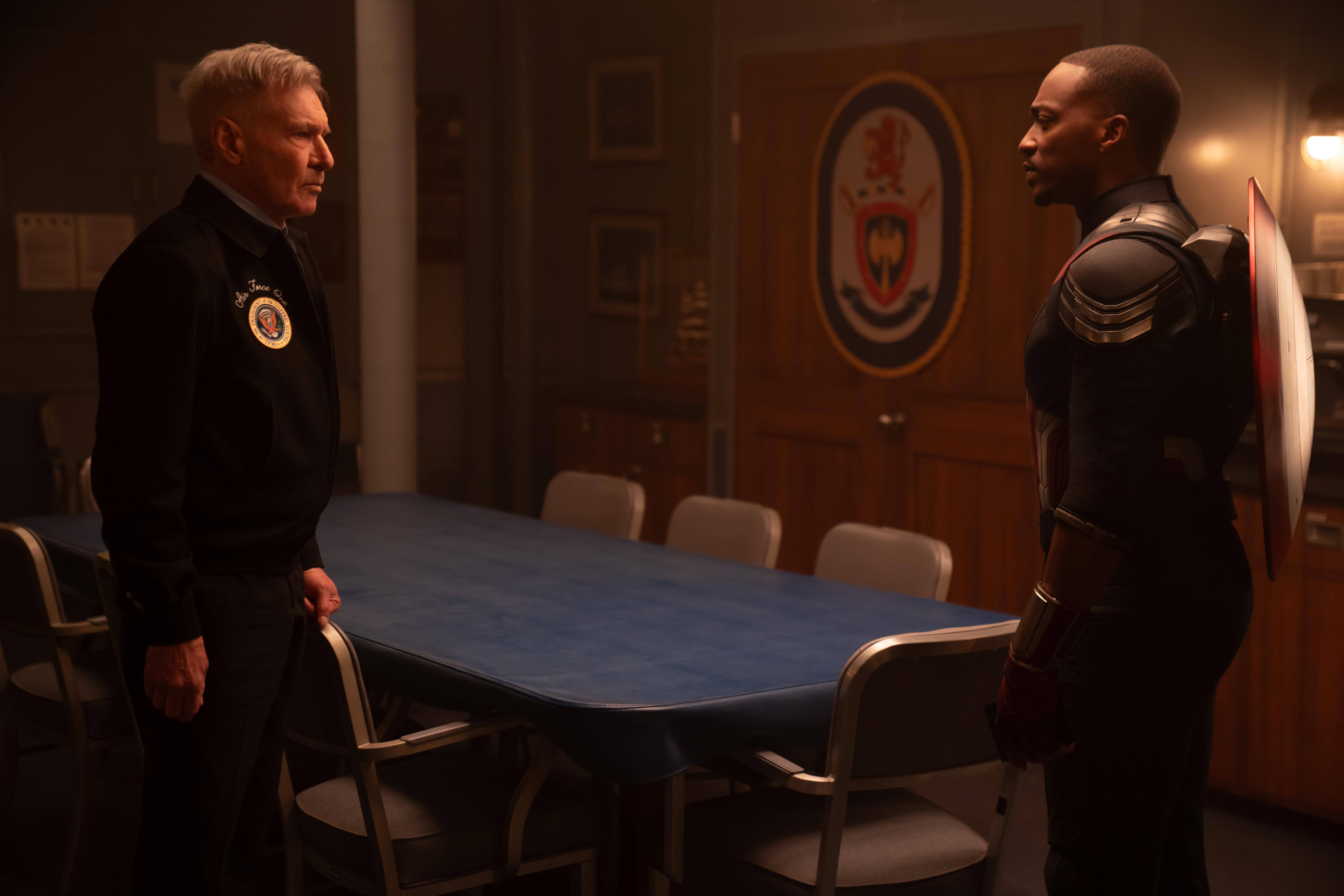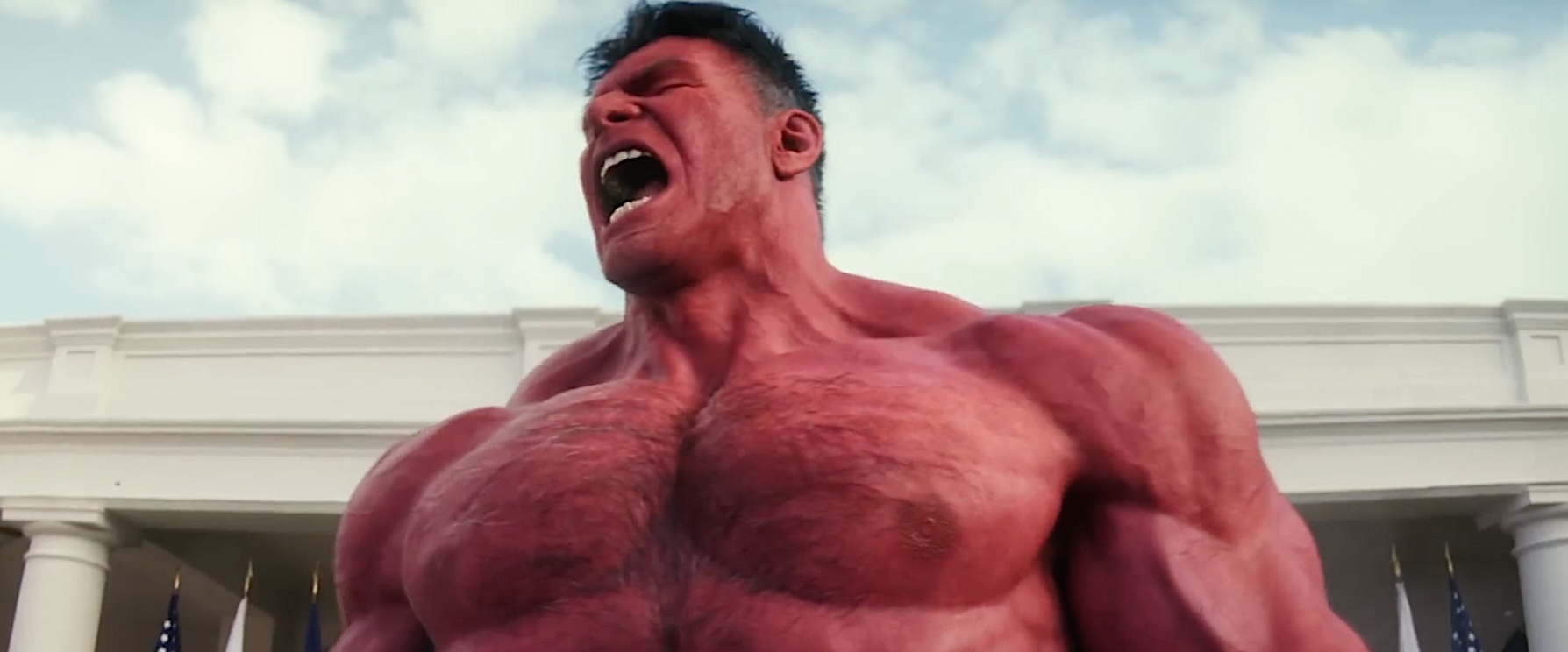Mike Flanagan didn’t start his storytelling career on Netflix, but it is where he found his voice. Starting with The Haunting of Hill House, Flanagan has created, written, and directed increasingly personal and complicated series for the streaming service. Each show, from The Haunting of Bly Manor to Midnight Mass, is an exploration of an ensemble cast’s dark shadows through ghoulish jump scares and an endless string of monologues.
But while Flanagan has always excelled at using his characters to explore existential questions about death and faith, The Fall of the House of Usher, his latest and last series for Netflix, is his first real attempt to move beyond personal darkness and take on larger societal ills. It is his biggest, most ambitious show; it’s often even his most impressive. But it’s also far and away his worst.
[Ed. note: This story contains spoilers for The Fall of the House of Usher.]
:no_upscale()/cdn.vox-cdn.com/uploads/chorus_asset/file/24977074/TFHU_106_Unit_04905RC.jpg)
An extremely loose adaptation of the Edgar Allan Poe short story, The Fall of the House of Usher follows the Usher family, most specifically the siblings at the head of it, Roderick (Bruce Greenwood) and Madeline (Mary McDonnell), as their family and pharmaceutical empire crumbles around them. Before their recent fall from the top, a scandal-filled week that also saw each of the family’s six heirs die tragically, the Ushers were one of the richest and most powerful families in the world, but also one of the most hated.
In typical Flanagan fashion, the story is told through a frame narrative: an aging Roderick Usher taking us through his own rise and fall, all with the death toll of about one Usher scion per episode.
If there’s one thing that Flanagan has proven in his previous four shows and two movies at Netflix (and his Doctor Sleep movie, which came in the middle of all of that), it’s that he’s a tremendously gifted craftsman and technician. Each of the Usher kids’ stories are told precisely and effectively, sowing seeds of their poetic demise early in the episode before paying them off in the end before a smash cut to the title card and credits.
Flanagan is a tremendous adapter of horror stories, but what he’s even better at is a sort of bibliographic quilting — combining pieces, elements, stories, and ideas from several works of an author and assembling them together into a beautiful pastiche. This is exactly what he did when he married Stephen King’s version of The Shining with Stanley Kubrick’s movie in Doctor Sleep, and what he slyly did in The Haunting of Hill House, where other Shirley Jackson allusions made their way into the story. But none of those were half so ambitious as weaving nearly every one of Poe’s short stories, poems, and other writings into one series. Each and every one of the deaths is a reference to another, different Poe story, and his characters, ideas, and scares are laced into every corner of Usher’s plot and world.
:no_upscale()/cdn.vox-cdn.com/uploads/chorus_asset/file/24915637/TFHU_104_Unit_00824RC.jpg)
Unfortunately, Flanagan’s series buckles under the weight of its own references, and by the end it snaps open, revealing itself to be completely hollow and thematically and emotionally empty.
For as well done as most of the individual episodes are, and as carefully plotted as each Usher kid’s demise ends up, the stories themselves wind up feeling emotionally vacant and add up to nothing. When Leo falls off his balcony chasing an invisible cat, we don’t get a better sense of the character, or the world, or what the show is really about — just one more gruesome death. It’s one thing to make a rich asshole that feels vaguely, begrudgingly fun to root for; it’s another to create characters whose whole purpose is for us to cheer at their horrible death. The Ushers are really never more than an idea in their own show. The children don’t each come to represent some failing of their father or his evil empire; they’re just here to die. Flanagan never manages to make any one of these people feel like anything but avatars for a new kind of suffering and an esoteric Poe reference.
This half-baked approach to themes shows up all over House of Usher, but the series’ dealings with the supernatural and the opioid epidemic are what actively hurt it most.
The Ushers made their fortune with an opioid drug called Ligadone, a tremendously strong “nonaddictive” painkiller that turned out to be hyper addictive, even if the regulators didn’t see it that way. The drug is Flanagan’s way into the opioid crisis, and his way into Usher’s only semi-coherent thematic goal: showing us that the opioid epidemic is a massive human tragedy built purely on greed.
The real turn in the plot for House of Usher rests on frequent Flanagan player Carla Gugino, who plays the show’s only real supernatural entity: a character named Verna, a mysterious supernatural entity with a seeming interest in suffering and power. In the ’70s, she makes a deal with Roderick and Madeline that their dream of fabulous wealth in pharmaceuticals will come true, free from the frustrating roadblocks of litigation or consequence. But after their years of success, their entire bloodline dies out with them.
:no_upscale()/cdn.vox-cdn.com/uploads/chorus_asset/file/24915636/TFHU_102_Unit_01074RC.jpg)
It’s a deal with the devil, a classic setup, and a strong enough act of hubris to stand entirely on its own. But Flanagan refuses to let his show be anything less than sweeping, and to comment on any less than the whole of the 20th century. And in doing so, he goes (way) too big. Flanagan shows us photos of Verna palling around with people she seems to have made similar deals with, though it’s never clear what her motivations are. There are photos of Prescott Bush (father of George H.W. Bush and grandfather of George W. Bush), the Vanderbilts, the Rockefellers, William Randolph Hearst, and John Francis Queeny — the latter of whom Arthur Pym (Mark Hamill), the Usher family attorney, points out is the founder of Monsanto, in case things were too subtle for you so far.
There’s even a photo of Donald Trump, though Flanagan can’t resist drawing an extra line under him, later having Verna say that she “told another client of hers he could shoot someone on Fifth Avenue and get away with it” as a display of her power. It’s profoundly embarrassing, but also a good display of the level of nuance that Flanagan seems to be capable of working with on these issues.
Near the end of the show, Verna corners Roderick in his office and shows him a vision of the New York skyline with the bodies of his victims raining from the sky. She gleefully recounts opioid statistics at him (and the audience) didactically, then she seems impressed when she informs Roderick that he’s in her top five all-time killers. Since we know she’s dealt with some of the 20th century’s most powerful people, we’re supposed to understand just how bad opioids are, but because we don’t know much about her or her clients, this all just comes out kind of muddy.
It’s the kind of scene that scans just fine on paper, and even initially may read as powerful. But upon even a second of scrutiny, it falls apart completely and reveals itself to be utter cowardice. We’re shown that the price of Roderick and Madeline’s greed is genocide, but by crediting the success of their empire to some supernatural force, Flanagan is letting his real monsters off the hook.
:no_upscale()/cdn.vox-cdn.com/uploads/chorus_asset/file/24866537/TFHU_101_Unit_04174RC.jpg)
In Roderick’s case, it removes the agency that made him interesting. Rather than an ardent self-believer willing to blinker himself into total ignorance, he becomes a cog in a cosmic game that was over as soon as he signed the contract. Roderick is interesting when he’s the version of the character we see early on: a man in total and absolute denial that his drug could cause anyone problems. His insistence that addiction to Ligadone is a moral failing on the part of the user is brazen and horrific enough, and could be the foundation of a truly great character, but the show gives that up in hopes of supernaturally tying together all the ills of the 20th century.
Usher falters most when Flanagan tries to imbue any of this with a larger meaning. Flanagan is in his bag when he’s in the realm of supernatural forces working in people’s lives, subtly moving the existential lines in the brains of one or two people and how that radiates out to the people they love — like in his best work, Midnight Mass. But when he dips into tangible, real-world issues, hyperbole creeps in, and his invocation of the supernatural as an effect on society simply weakens his showy dialogue, leaving it open to bland generalization and oversimplification. Placing a fictional opioid magnate alongside, presumably but not explicitly, some of the great powers of the 20th century trivializes real loss, and turns actual genocide into blurry hyperbole — all for the sake of dramatic effect in a show that absolutely doesn’t earn that kind of loftiness.
This is where the limits of Flanagan’s Poe pastiche really show themselves. By taking all of Poe’s work and smelting it into one narrative alloy while grafting the opioid crisis on top of it, he’s created something wholly new, but also something brittle that can’t bend an inch without snapping. House of Usher’s theme only goes as deep as Flanagan’s surface-level references because it’s so completely his own creation.
:no_upscale()/cdn.vox-cdn.com/uploads/chorus_asset/file/24992137/TFHU_105_Unit_04888RC.jpg)
What this means for Usher is that Flanagan nails the setup, with a fantastic pilot and a few good follow-ups. It’s when he starts trying to connect any of these parts that the whole thing gets away from him. Each episode’s singular narrative is fine enough, and the series is always watchable, but the collective whole of the story amounts to very little and falls frustratingly short of the goals it sets for itself. If the series had simply let its thematic work on the opioid crisis take a back seat to the narrative of these wealthy monsters, it would have been a tremendous bit of devious fun. But instead, Flanagan ends the show with its focus solely on the family as a detriment to society rather than its petty misdeeds.
Taken as a whole, the series is at best just a boring shadow of better work both by Flanagan and other directors, and at worst outright offensive. By choosing to filter the series through the real-world tragedy of the opioid epidemic, Flanagan manages only to draw a line under how evil his own creation is, but also how boring. The real-world opioid companies are evil, and do irreparable harm that’s nearly impossible to comprehend. But that harm isn’t supernatural; it’s regular, boring, and greedy. Flanagan seems desperate for his story to communicate with real-world problems, but instead it waves away those problems with a shoddy ghost story that gives real evil a pass in favor of punishing Usher’s lamentable fake family.








